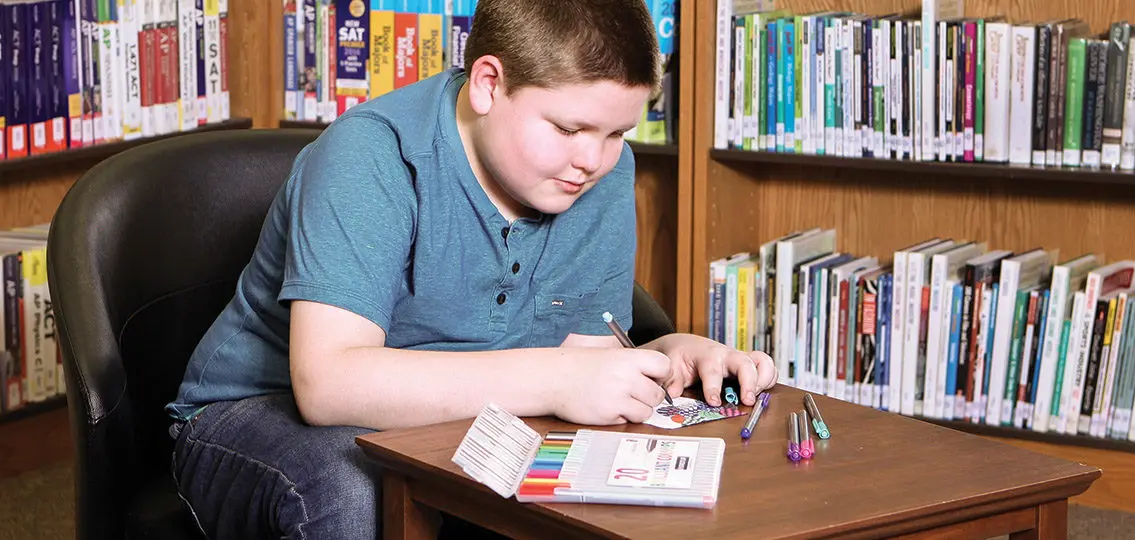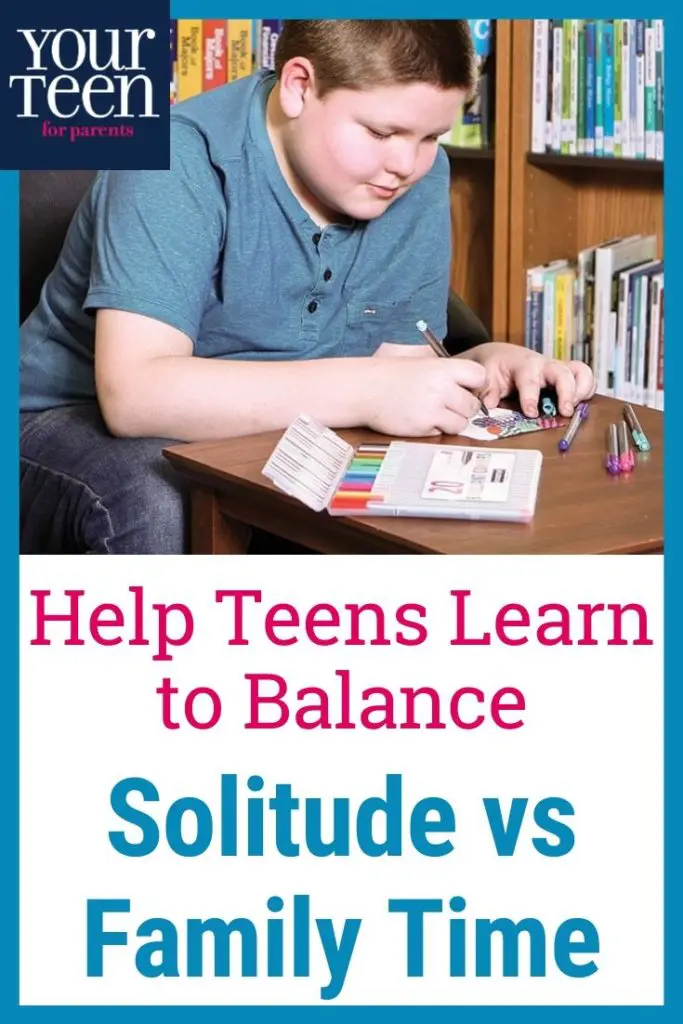Somewhere on the way to turning 15, my oldest son stopped being my shadow. Instead of clinging to my legs to go with me to the store, he now barely waves goodbye as I set off without him. On a typical school day, there’s barely time to get in a “How was your day?” He’s in the door, into the kitchen to grab a snack, and off to the dungeon—I mean bedroom.

Of course, parents don’t like facing shut doors to bedrooms that were once open. What’s going on behind that door? What if something’s terribly wrong? Turns out, when teens choose to spend time alone, it’s not always a red flag. In fact, they may just know what’s best for them.
Solitude Has Benefits for Teens
“Silent time, a bit of sanctuary, is all too infrequent for our teenagers. The vast majority of their awake hours are filled with external noise,” says John Duffy, clinical psychologist and author of Parenting the New Teen in the Age of Anxiety. “They need to be able to generate the emotional sophistication to sit with and process their own thoughts.” Alone time can help.
What’s Healthy Solitude?
According to current research in the Journal of Adolescence, whether solitude is beneficial or a risk factor for teens depends on the motivation.
When teens choose to spend time alone because of social anxiety or to directly avoid people or activities, it can be a bad sign. However, solitude chosen for self-determined reasons—such as taking time to mentally recharge or pursue a creative endeavor—contributes to teens’ personal growth and self-acceptance.
Excessive isolation, such as little time out socially with friends, can signal emotionally unhealthy behavior. Christopher Kearney, psychologist and director of the University of Nevada, Las Vegas Child School Refusal and Anxiety Disorders Clinic says some other red flags include a sudden uptick in the amount of alone time that’s normal for your teen and alone time interfering with their ability to complete daily tasks such as schoolwork or chores.
Finding the Balance Between Solitude and Family Time
With social media, video games, and other screen-based activities taking up a lot of our teens’ attention, parents may worry about excess screen time leading to depression, anxiety, and attention issues. Moderating time alone with devices, however, is not necessarily something parents should worry about.
But as much as teens need alone time, they also need to feel connected to others. Kearney suggests engaging in regularly scheduled family activities that teens are interested in. “This could involve simple things like going out to dinner at a favorite place, seeing a movie together, or walking around the neighborhood,” he said.
Another approach is to keep homework, computers, and video games in public areas of the house, adds Duffy.
Most importantly, he says, “Share meals together as a family.”

No matter the approach, parents need to recognize the need for their teens to decompress and wind down from their stressful days full of social and academic challenges. Duffy recommends parents navigate the fine line between healthy and unhealthy teen alone time with open dialogue. What do they like about time alone? Does it reenergize them for the world? “Balance here is the key,” he said. “And it’s best achieved through a healthy flow of communication with your child about their alone time.”





